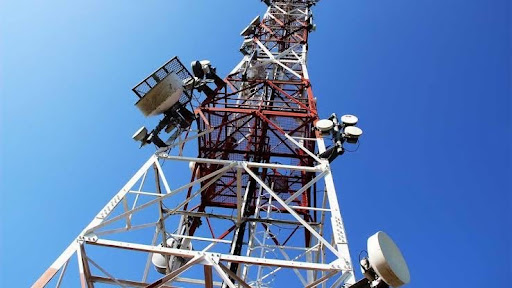Reactions Trail Zamfara State’s Plan To Restore Mobile Networks, Reopen Market Next Week
In an effort to alleviate the insecurity that plagues many parts of the state, Zamfara shut down mobile networks in September.

Governor Bello Mohammad Matawalle of Zamfara State in Northwest Nigeria has said his administration will restore mobile network service between Monday and Tuesday next week.
Matawalle made the assurance on Saturday, Nov. 26, 2021, during a political gathering for the election of the state party chairman.
“Our information indicates that security problems have decreased in parts of the state, and that on Monday or Tuesday we will re-open mobile phone lines, and everyone will be able to make phone calls,” Matawalle said.
In an effort to alleviate the insecurity that plagues many parts of the state, Zamfara shut down mobile networks in September.
Markets were closed in August 2021, and filling stations were prohibited from selling petrol for more than 10,000 Naira, and the sale of fuel in jerry-cans was outrightly prohibited.
Terrorists in the Northwest are said to be supplied with petrol to fuel their motorcycles and stage attacks and kidnappings for ransom.
However, some markets in the state were reopened, and the mobile network was restored in Gusau, the state capital, in October.
It Was Trial-and-Error Approach – Residents
However, residents of Zamfara state and other Nigerians claim that the network shutdown was ineffective. They described the method as a “trial-and-error” approach to combating insecurity, saying it only worsened the situation in some parts of the state by making it difficult to send a distress call to security agencies.
Aminu Alzamfari of Gusau, the state capital, said that many villages with no security presence had difficulty attracting the attention of local vigilantes, who were the only groups responding to terror attacks in their areas.
“Villagers from Anka, Talatar-Mafara, Maru, Bungudu, Tsafe, Gumi, and Bukuyum had no choice but to send their families, especially women and children, to their local government headquarters to find safety,” he said.
According to him, instead of using high-tech equipment to track down terrorists, security agencies decided to shut down the mobile network entirely, which he believes was a huge mistake on their part.
Shammasi Aliyu, a Zamfara resident, said he had never experienced such difficulties in his life as during the period when the network was down and the markets were closed.
According to Aliyu, petroleum became exorbitantly expensive, and bread was not permitted to be transported to some villages and towns, causing more hardships than anticipated and failing to deliver the expected solution.
Terrorists, he claims, “have grown so powerful that even the government must work religiously to eradicate their presence.”
However, according to Abdullahi Isa Abu Amatallahi, the network shutdown has obviously reduced the number of attacks and kidnappings for ransom, despite increasing residents’ hardships.
According to him, over 300 villages came under the control of terrorists, who imposed various hardships on their lives. “It got so bad that terrorists were able to break into someone’s house and rape his bride in his presence,” he explained.
Aliyu Samba, a local journalist reporting on insecurity in northern Nigeria, argued that the situation had only exacerbated the insecurity.
“The governor devised the means as a solution to the insecurity, but in reality it was an ill-advised tactic,” he said. “There was a person whose farm was burned to ashes, but no one knew until he went to Gusau and reported it,” Samba added.
Support Our Journalism
There are millions of ordinary people affected by conflict in Africa whose stories are missing in the mainstream media. HumAngle is determined to tell those challenging and under-reported stories, hoping that the people impacted by these conflicts will find the safety and security they deserve.
To ensure that we continue to provide public service coverage, we have a small favour to ask you. We want you to be part of our journalistic endeavour by contributing a token to us.
Your donation will further promote a robust, free, and independent media.
Donate HereStay Closer To The Stories That Matter




